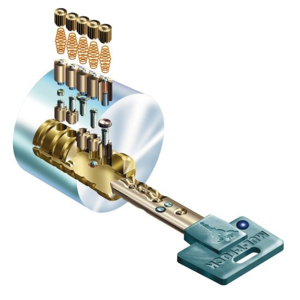Sliding patio doors are a wonderful addition to any home, and in many cases, enable easy access to outside spaces and provide welcome relief from the stuffiness of being cooped up inside – especially in recent months! However, the locks to sliding patio doors often experience issues, and this may be due to constant use, misuse, or poor quality locks. Whatever the problem though, it’s important to get it fixed as soon as possible, as patio doors are typically susceptible to break in attempts, and can leave homeowners vulnerable to theft and intrusion.
Below are 4 common and effective solutions to sliding patio door lock issues:
- Lubrication
While lubrication is never enough to fix a more serious issue, it may help to keep the door moving properly until the necessary repairs can be made, and can even prevent damage, due to the smoother opening.
If the latch to your sliding door is stuck in a locked position, or isn’t extending as fully as it should, lubricating can help unstick it and get it moving properly again. For any part of your patio door locking system that isn’t moving properly, it’s important to lubricate the part that isn’t moving.
- Fixing the door
Sometimes, the issue is not with the locking system, but the sliding patio door itself, and in these instances, you may need to ask a locksmith to adjust the lock and latch, should the door have become warped or damaged. Or, the problem may be as simple as something blocking the tracks that the door runs on, in which case cleaning the tracks should do the trick. In some cases, it may be necessary to trim the door so that it fits snugly and runs smoothly; any issues with the door could mean that security to your home has been weakened, and a call to your local locksmith would be highly recommended.
- Repairing the lock
Cheap locks on sliding patio doors may seem a good option at the time, but when they develop a problem (which they invariably do), they have to be taken apart, and reassembling them isn’t usually an option. Mortise locks, on the other hand,can be opened for more extensive cleaning or to get a closer look at the problem, and if the lock on your patio doors is a cheap one, you should ask a local, residential locksmith to upgrade it at the earliest opportunity.
Ultimately, if your sliding door lock is broken or damaged in some way, you’ll need to hire a locksmith to look at it and repair it; it isn’t worth trying to fix the problem yourself, as you risk compromising the security of your entire home.
- Replacing the lock
Generally speaking, most sliding patio doors are designed to have one type of lock fitted, and most cannot be adjusted to accommodate a new one. When choosing your patio doors, opt for ones with the most secure lock (a licensed locksmith can help you with this), or if your sliding patio doors are old or no longer suit your taste, consider replacing them with a more modern and secure set.
Sliding patio doors can be made secure, but it’s important to recognize that they are often a weak spot for many homes, and if you don’t have any other security measures in place, such as CCTV surveillance, burglar alarms or motion sensor lights, a burglar could target them to gain entry to your home. With this in mind, consult with a residential locksmith and find out how to make your patio doors as secure as they can possibly be.



